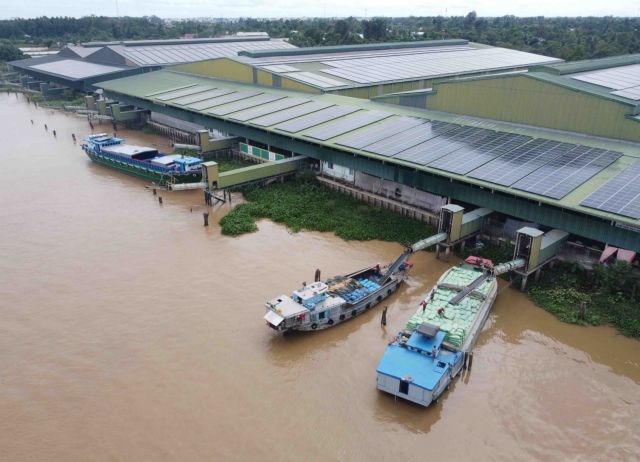Growth in Việt Nam's southeast region could reach 8.07 per cent annually during the 2021-30 period, according to a report by the Institute of Development Strategy under the Ministry of Planning and Investment (MPI).

Growth in Việt Nam's southeast region could reach 8.07 per cent annually during the 2021-30 period, according to a report by the Institute of Development Strategy under the Ministry of Planning and Investment (MPI).
The report said the region has become a dynamic development area in recent decades with rapid growth recorded on all fronts including economic, financial, commercial, service, education and job training.
The Southeast has been home to a skilled labour force and one of the country's leaders in science and technology, innovation and digital transformation.
According to MPI, projected growth for the region was between 6.04 per cent to 8.07 per cent annually for the period.
In scenario 1 or the low-growth scenario, the projected gross regional domestic product (GRDP) growth rate is expected to average 4.92 per cent per year for the period 2021-25, and reach an average of 7.18 per cent per year for the period 2026-30. Overall for the period, the average growth rate is projected to be 6.04 per cent per year. For the period 2031-50, the expected growth rate is around 6.85 per cent per year.
During the period 2021-2030, the contribution of total factor productivity (TFP) to growth is estimated to be 46.8 per cent; labour productivity growth is expected to average 5.4 per cent per year. The projected average per capita income is around VNĐ200 million (US$8,200) by 2025, VNĐ315 million ($11,800) by 2030, and VNĐ833 million ($38,500) by 2050.
An estimated investment capital of around VNĐ11.4 quadrillion will be needed during the period 2021-30, which is 2.1 times the amount required during 2011-2020. The investment-to-GRDP ratio at current prices is expected to be around 27 per cent.
In scenario 2 or the medium-growth scenario, the projected GRDP growth rate is expected to average 5.48 per cent per year for the period 2021-25, and reach an average of 8.66 per cent per year for the period 2026-30. Overall for the period, the average growth rate is forecast to be 7.06 per cent per year. For the period 2031-50, the expected growth rate is around 7.2 per cent per year.
During 2021-30, the contribution of total factor productivity (TFP) to growth is estimated to be 50.9 per cent; labor productivity growth is expected to average 6.4 per cent per year. The projected average per capita income is around VNĐ205 million ($8,400) by 2025, VNĐ345 million ($13,000) by 2030, and VNĐ1 billion ($38,500) by 2050.
An estimated investment capital of around VNĐ12.3 quadrillion will be needed during 2021-30, which is 2.3 times the amount required during 2011-2020. The investment-to-GRDP ratio at current prices is expected to be around 28 per cent.
In scenario 3 or the high-growth scenario, the projected GRDP growth rate is expected to average 5.97 per cent per year for the period 2021-25 and 10.2 per cent per year for the period 2026-30. Overall for the period, the average growth rate is projected to be 8.07 per cent per year. For the period 2031-50, the expected growth rate is around 7.6 per cent per year.
During the period 2021-30, the contribution of total factor productivity (TFP) to growth is estimated to be 58.5 per cent; labour productivity growth is expected to average 7.4 per cent per year. The projected average per capita income is around VNĐ210 million ($8,600) by 2025, VNĐ380 million ($14,500) by 2030, and VNĐ1.2 billion ($53,000) by 2050.
An estimated investment capital of around VNĐ15.8 quadrillion will be needed during the period 2021-30, which is three times the amount required during 2011-2020. The investment-to-GRDP ratio at current prices is expected to be around 32 per cent.
The projection was made based on a number of input variables such as economic, trade, and investment growth, demographic changes, social issues, climate change, the impact of the Fourth Industrial Revolution and Việt Nam's developmental strategy.
The institute said the region has been and is to play a crucial role in the country's next socio-economic development phase. In 2022, the region's GRDP accounted for about 31 per cent of Việt Nam's GDP with exports at 35 per cent and regional budget at 38 per cent. — VNS





